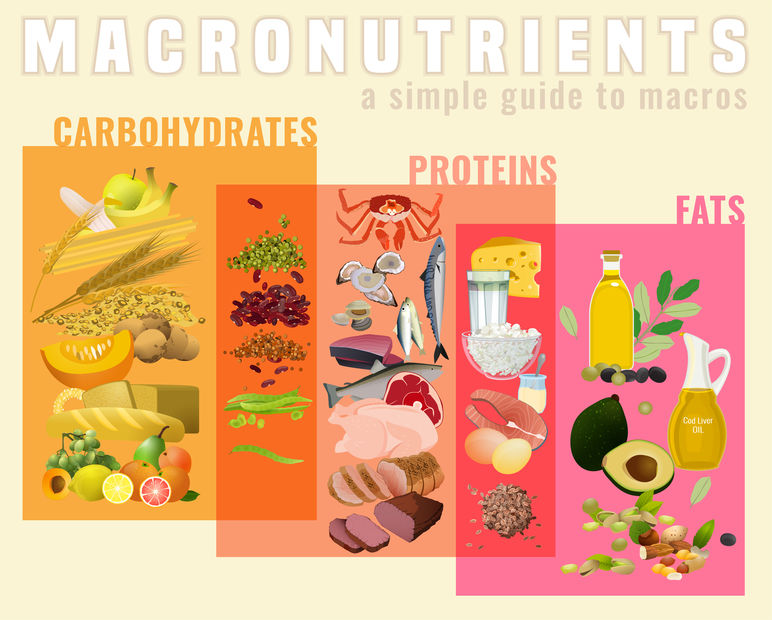
“Macronutrient” is a term you probably hear thrown around quite a bit in discussions and articles about nutrition. Essentially, these are just the nutrients our bodies need the most of for healthy functioning and growth.
Since March is National Nutrition Month—and because there’s a lot of misinformation out there about this topic—the BEK team thought we’d breakdown the basics of each of the three macronutrients we need to survive. Let’s dive in!
Carbohydrates
When you consume carbohydrates, your body breaks them down into glucose, which it then uses as its primary source of energy. Carbs have a bad rep, with a lot of people insisting they’re “bad” and will make you gain weight. But the truth is, all of our bodily systems from the brain and muscles to your digestive system and heart need carbohydrates to function. Glucose from carbs that is not immediately used as body fuel is stored in your cells to use later.
Health experts recommend that carbs make up 45-65% of your daily diet. Foods like starchy vegetables, legumes, whole grains, and fruits are all good sources of carbs.
Fats
Fat is another important source of energy for your body, particularly in times of caloric deficit. It also serves many other important functions, such as protecting organs, body insulation, facilitating proper cell functioning, and helping you absorb essential nutrients. This macronutrient should make up about 20-35% of your daily diet. It is important, however, to consume fat in moderation in order to maintain a healthy weight.
Animal sources, such as beef, butter, and cheese contain mostly saturated fats. It is best to minimize your consumption of this type of fat, as it can increase your cholesterol levels and risk for heart disease. Unsaturated fats are considered the “healthier fats”, and come from plant sources like nuts, seeds, and oils.
Proteins
Protein provides your body with the building blocks it needs to make muscle, skin, blood, and hair, as well as keep your brain functioning. These building blocks are called amino acids. Our bodies make some of their own amino acids, but there are 9 “essential” amino acids they do not make and must consume to survive. Protein also helps transport oxygen and nutrients throughout your body and provides additional energy.
Protein should be about 10-30% of your daily diet. It can be found in foods such as meat, poultry, seafood, milk, eggs, beans, nuts, and seeds.
The home medical supplies we offer at BEK Medical make it easy for you to put your health and wellness first. Our products can help anyone at any age or with any medical condition live a healthy, active lifestyle for many years to come.
Find the products you need online or in-store today!
